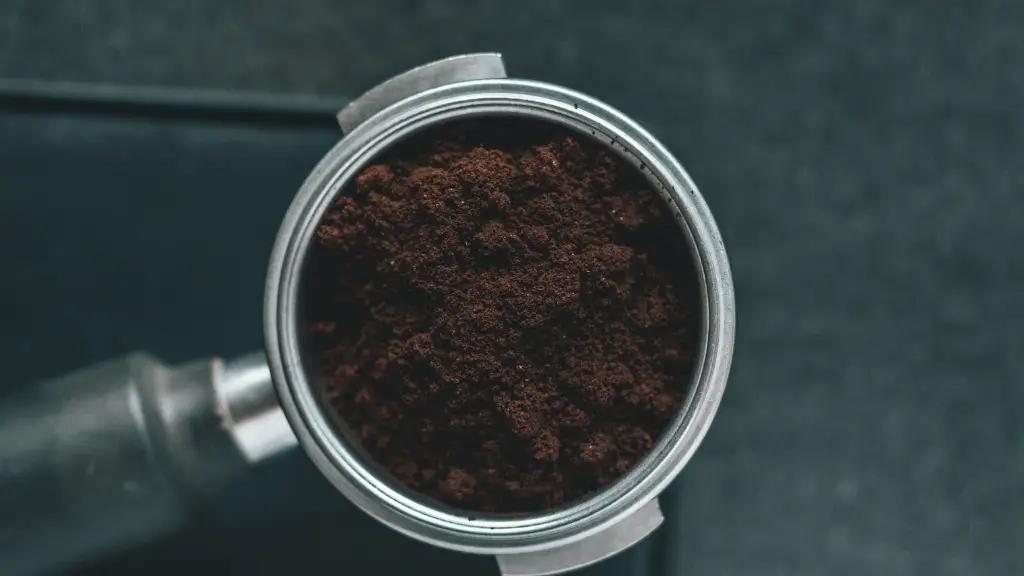Levothyroxine and Coffee
Levothyroxine is a synthetic form of a hormone produced by the thyroid. It is prescribed to treat hypothyroidism, where the body cannot produce enough of its own hormones, as well as various thyroid disorders, such as goiter or thyroid cancer. As coffee is a stimulant of the nervous system, there is a common question among patients using levothyroxine: is it OK to drink coffee after taking this medication?
Caffeine, the active ingredient in coffee, is known to interfere with the absorption of levothyroxine, a condition called “levothyroxine malabsorption”. This can cause ineffective treatment of the condition and can prevent the thyroid from working as it should. The medical recommendation as a result is to take levothyroxine at least an hour before or after drinking coffee, to avoid this problem. As such, it is probably best not to drink coffee after having taken levothyroxine, but instead wait until the prescription has been completely absorbed in the body first.
Studies have shown that the time of day that levothyroxine is taken may have an effect on its effect on the body. For example, one study of adults with hypothyroidism showed that taking the medication in the morning at least 12 hours before bedtime was more effective in improving levels of thyroid hormones than taking it just before bedtime. It is unclear as to why this would be the case. One suggestion is that under the influence of coffee, the medication may not be absorbed properly from the gastrointestinal tract into the bloodstream.
The majority of health care professionals suggest that the best time to drink coffee after taking levothyroxine is two or three hours later. They also recommend that people with hypothyroidism limit their intake of coffee to two or three cups daily. This will help to reduce the risk of levothyroxine malabsorption and should ensure that the medication is as effective as possible.
It is important to note that caffeine can also interact with other medications and supplements, particularly those taken for depression, diabetes, or high blood pressure. As such, it may be a good idea to speak to a health care professional before drinking coffee after taking levothyroxine, in order to determine the best course of action.
Levothyroxine and Other Food
Levothyroxine can also interact with other food and drinks. Dairy products, for example, can also interfere with the absorption of levothyroxine. Calcium and iron supplements, as well as multivitamins and some other vitamins, have also been shown to reduce the effectiveness of this medication. Eating one to two hours before or after taking levothyroxine is therefore the safest course of action.
It is also a good idea to limit the number of food and drink products containing high levels of sugar, as levothyroxine has been shown to be less effective if taken with fructose, a type of sugar found in some beverages and desserts. It is important to remember, however, that sugar and caffeine are not the only substances that can interfere with levothyroxine, as it can also interact with certain herbs and supplements, such as spirulina, guggul, and preparations containing kelp.
The best way to ensure that your levothyroxine is as effective as possible is to take it according to the instructions provided by your health care professional. It is important to adhere to the prescribed dosage and to avoid any foods or beverages that might interfere with its absorption. It is also advisable to discuss any dietary changes with your doctor, as some medications may need to be adjusted if changes to the diet are being made.
Finally, it is important to speak to a doctor or health care professional about any concerns about the effects of consuming coffee after taking levothyroxine. While it is generally recommended that coffee be avoided immediately after taking the medication, different people may have different needs and a health care professional can help to determine the best course of action.
Long-Term Effects of Levothyroxine
It is important to consider the long-term effects of taking levothyroxine, in particular the potential side effects associated with the medication. While side effects are relatively rare, they can include insomnia, headaches, sweating, tremors, anxiety, palpitations, and joint and muscle pains.
If symptoms develop, it is important to alert your doctor as soon as possible and discuss an alternate course of action, as some medications may interact with levothyroxine and cause additional unwanted side effects. It is also a good idea to avoid alcohol while taking levothyroxine, as this can cause further side effects to develop.
Long-term use of levothyroxine may also affect other bodily systems, such as the digestive system, cardiovascular system, and the reproductive system. It is therefore important to keep your doctor informed of any changes in your health status, as she or he will be able to adjust your medication if necessary.
It is also important to note that some long-term effects of levothyroxine may take a long time to manifest themselves, so it is important to monitor any changes in behavior or physical symptoms in order to report them to your doctor.
Evaluation
While it is generally recommended to avoid consuming coffee after taking levothyroxine, it is important to remember that this is not the only factor to consider. Different people have different needs, and it is important to speak to a health care professional in order to determine the best course of action that is most suitable for your particular needs.
It is also important to remember that levothyroxine can interact with other food and drinks, as well as supplements and herbs. It is therefore important to be aware of any potential interactions and to make sure that the medication is taken according to the instructions provided by a health care provider.
Finally, it is important to understand the potential long-term effects of taking levothyroxine, and to be aware of any potential changes in behavior or physical symptoms. It is also important to remember to alert your doctor as soon as possible if any side effects or changes occur.
Risk Factors
It is important to consider the risk factors associated with taking levothyroxine, as this medication can sometimes cause side effects, and it may also interact with other medications and food and drink. People with certain medical conditions, such as heart disease, high blood pressure, or diabetes, may be at a greater risk of experiencing side effects.
It is also important to be aware of the potential risks associated with taking levothyroxine for long periods of time, including the risk of developing osteoporosis, as levothyroxine can reduce the body’s ability to absorb calcium. It is therefore important to monitor any changes in bone density, and to speak to a doctor if any concerns arise.
Finally, it is important to be aware that some people may also have sensitivity to levothyroxine, and as such, it is important to be aware of any potential side effects, and to alert your doctor immediately if any symptoms arise.
Alternatives
If consuming coffee after taking levothyroxine is a concern, there are a few alternatives that may help. For example, some health care professionals may suggest switching to a different type of medication, such as a natural thyroid hormone supplement, or a more slowly-releasing form of levothyroxine.
It is also possible to limit caffeine intake, either by decreasing the number of cups per day, or by switching to decaffeinated coffee. Another option is to drink coffee at least two to three hours after taking levothyroxine, or to take the medication at a different time of day.
It is important to note, however, that these alternatives may not be suitable for everyone, and it is important to speak to a health care professional in order to determine the best course of action. It is also important to remember that some of these alternatives may not be as effective as levothyroxine, and may have their own potential side effects.





